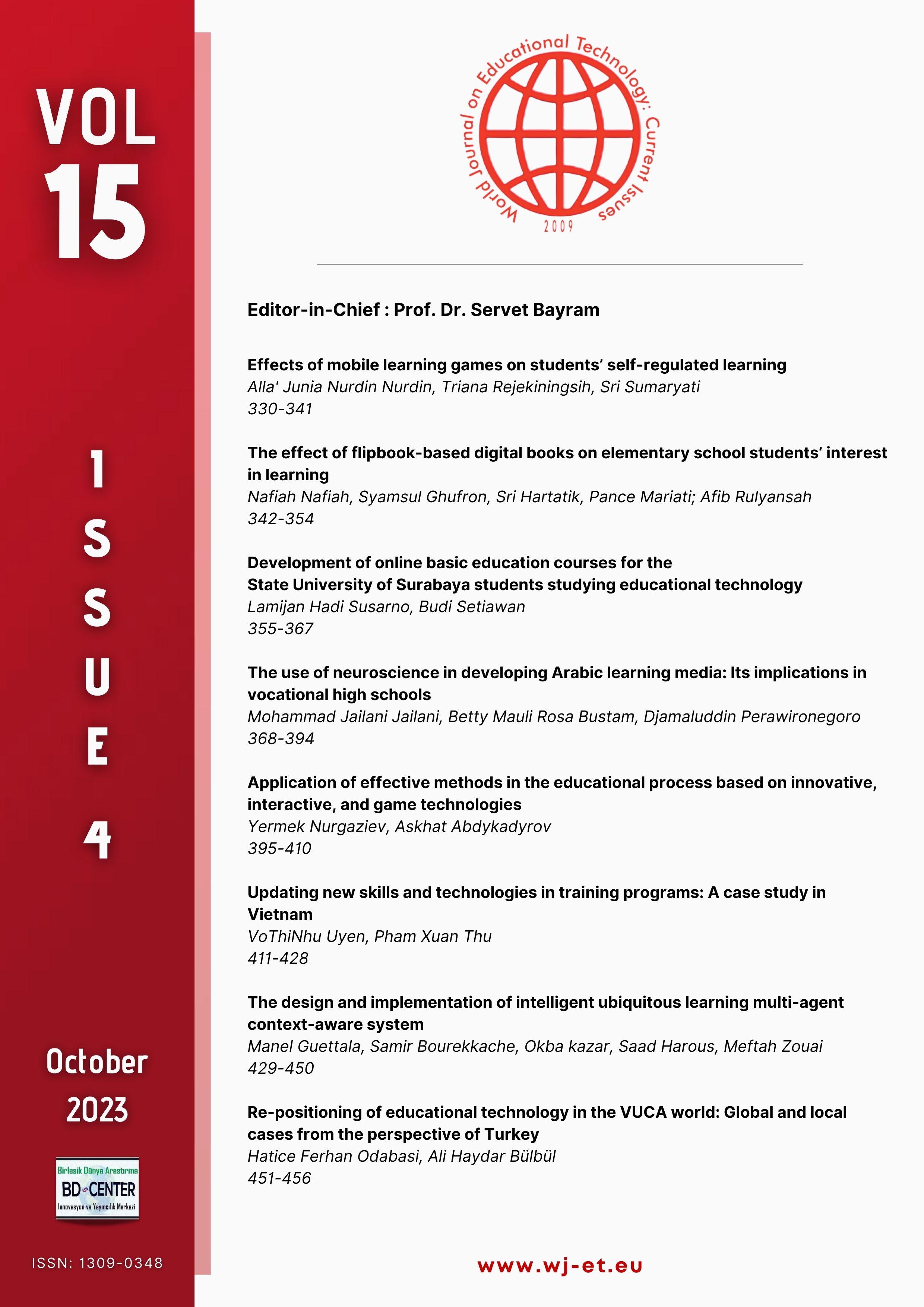Updating new skills and technologies in training programs: A case study in Vietnam
Main Article Content
Abstract
Industry 4.0 will bring extensive changes in work. While automation is likely to displace workers, new occupations will be created, which means the workers must be trained in new competencies and skills for production practices at the enterprises and the labor market in the globalization context. This article presents the survey results on Updating new skills - new technologies in training programs: A case study in Vietnam under the impact of the 4th industrial revolution and the level of combination between enterprises and vocational education institutes in training programs with 3 groups of occupations: 1-Information technology, electronics, and telecommunications; 2-Electricity, electronics; Automation; 3-Agriculture, forestry, and fishery. The questionnaire survey was conducted in two forms: online and in person at 700 enterprises, 50 TVET institutes, and 7,000 employees in 22 localities in Vietnam. The survey results are the basis for vocational training management agencies to make policies for vocational education to improve the quality of human resources, in line with Industry 4.0.
Keywords: Enterprises; industry 4.0; new skills; new technologies; training programs.
Downloads
Article Details

This work is licensed under a Creative Commons Attribution 4.0 International License.
World Journal on Educational Technology: Current Issues is an Open Access Journal. The copyright holder is the author/s. Licensee Birlesik Dunya Yenilik Arastirma ve Yayincilik Merkezi, North Nicosia, Cyprus. All articles can be downloaded free of charge. Articles published in the Journal are Open-Access articles distributed under CC-BY license [Attribution 4.0 International (CC BY 4.0)].
Birlesik Dunya Yenilik Arastirma ve Yayincilik Merkezi (BD-Center)is a gold open-access publisher. At the point of publication, all articles from our portfolio of journals are immediately and permanently accessible online free of charge. BD-Center articles are published under the CC-BY license [Attribution 4.0 International (CC BY 4.0)], which permits unrestricted use, distribution, and reproduction in any medium, provided the original authors and the source are credited.
